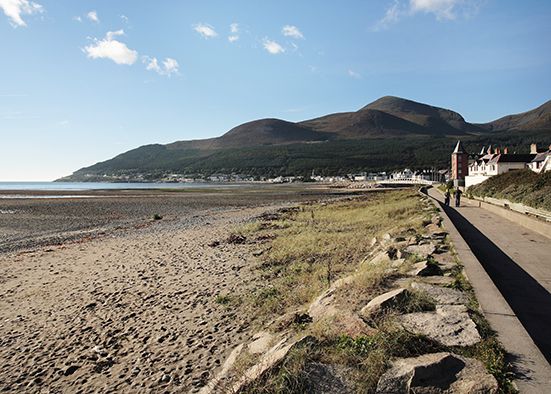E.coli swim fears
E.coli swim fears
21 June 2023

SEA swimmers were banned from the water in Newcastle last weekend after the discovery of elevated levels of the E.coli bug which poses a major risk to public health.
The discovery of the bacteria — which can cause vomiting and diarrhoea — was made last Friday on what was one of the hottest days of the year during regular testing by the Environment Agency.
In addition, E.coli can also lead to stomach pains and cramps and, in worst case scenarios, lead to kidney failure.
Posters were erected along the promenade and at the harbour warning people not to enter the water on Saturday.
While the all clear for swimmers to return to the water came 24 hours later, there are concerns about what happened.
E.coli and the presence of intestinal enterococci, which indicates the presence of faecal material, is being linked to Newcastle’s sewage treatment plant located at the harbour.
However, Northern Ireland Water insists that the discovery of the bacteria is not related to the facility.
Politicians are concerned that the harmful bugs were discovered at the height of the bathing season and when Newcastle was bursting at the seams with people making the most of the glorious weather.
They are seeking answers and are urging Newry, Mourne and Down Council to convene an urgent meeting with NI Water to flush out the exact cause of the contaminated sea water.
NI Water said yesterday all its wastewater facilities and combined sewer overflows in the Newcastle area were checked on Saturday and “nothing untoward” was found during the inspections.
A spokeswoman said bathing water quality can be impacted by a number of external factors including agricultural run-off of slurry and pesticides, with the Environment Agency responsible for monitoring water quality across the province.
Newry, Mourne and Down Council has confirmed that between the end of May and mid-September weekly water quality tests are undertaken at the district’s designated bathing waters.
A local authority spokeswoman said the tests monitor bacteria levels with the results posted locally. She said the results from water samples taken at Newcastle last Friday were received the following morning and identified elevated bacteria levels.
“As per the water safety procedure, Newry, Mourne and Down Council immediately erected posters with temporary advice against bathing,” she continued.
The spokeswoman said samples analysed the following day revealed no elevated bacteria levels and that on Sunday, results from a second set of samples showed that the elevated bacteria levels were no longer present.
Local councillors Willie Clarke, Glyn Hanna, Jill Truesdale and Andy McMurray have expressed concern at the discovery of bacteria in the seawater and are demanding answers.
Cllr Clarke said he was concerned that elevated levels of E.coli were recorded on one of the hottest days of the years.
“The discovery of the bug is disturbing and given there was no heavy rain for the past few weeks, we need to find out why there was a spike in E.coli levels,” he continued.
“There has been considerable investment in Newcastle’s sewage treatment works and all water leaving the plant passes under ultraviolet light to take all the bacteria out of the water. Ni Water said the plant is not to blame, so how did E.coli end up in the water is the question that must be asked?”
Cllr Clarke added: “We are in the middle of the bathing season and something like this happens which is not good for the resort’s image. Incidents like this should simply not be happening and we need to find out what led to poor water quality levels, even though it was only for a short period.”
Cllr Hanna described the discovery of harmful bacteria in the sea as “alarming on a number of levels” and argued not enough warnings were given to people not to enter the water.
“Sea swimming has become very popular in Newcastle so warnings on water quality need to be of a nature people can have easy excess to this information,” he continued.
“I have concerns and worries about water pollution in Newcastle and questions for the local council and NI Water as Newcastle beach has been having problems with water quality for a number of years.”
Cllr Hanna also confirmed he is seeking a meeting with NI Water to discuss sewage discharges at Newcastle harbour.
“People need reassurance seawater is safe when swimming, is this bacteria in the water only confined to Newcastle beach and how is NI Water and the Environmental Agency proposing to address pollution in the water, from whatever source.”
Cllrs Truesdale and McMurray claimed that in the midst of hot weather and when beaches are full, water quality messaging procedures have not been as robust as they should have been.
They are calling for a full review of all methods used by DAERA, the Environment Agency and local council when something of this magnitude occurs.
“The public water quality monitoring information boards on Newcastle promenade are either broken or switched off, the town tannoy system was not employed and the RNLI and Coastguard were not informed until Saturday lunchtime,” they said in a joint statement.
“A series of posters stapled to the promenade and an over reliance on word of mouth falls far short of what should happen. The social media pages from both government departments.”


